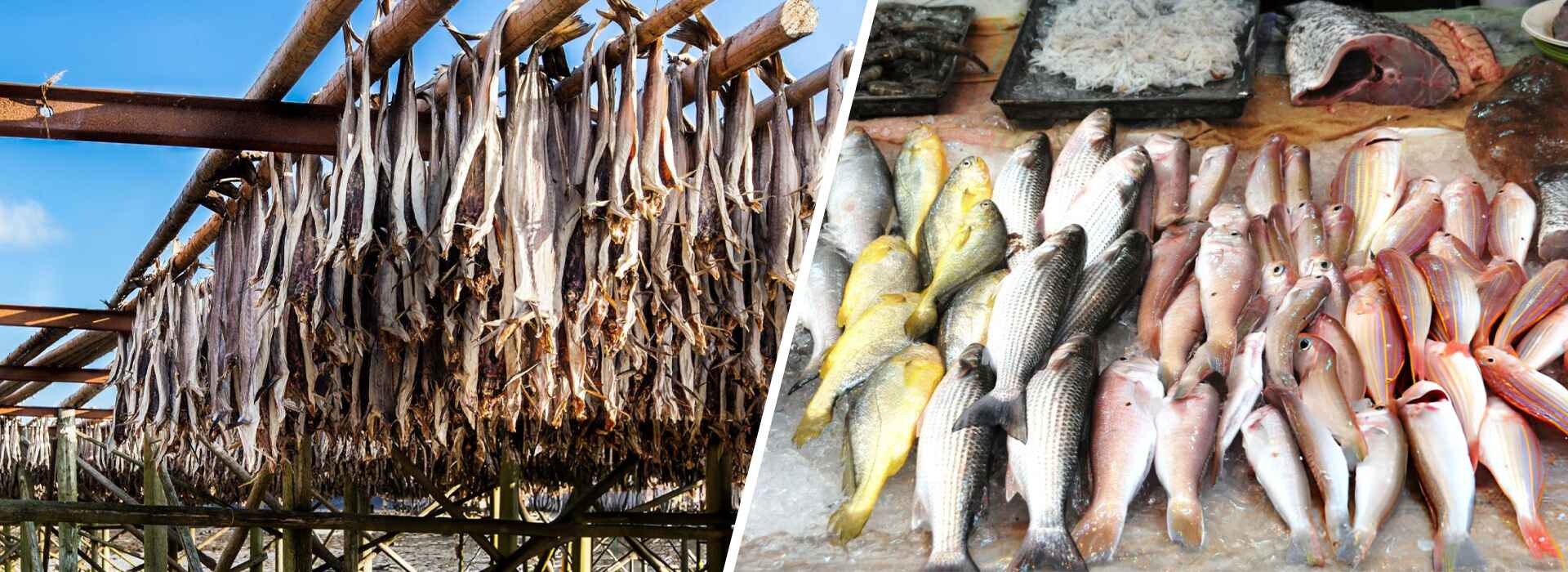Benefits of Seafood
Seafood offers a myriad of health benefits due to its rich nutritional profile. It is an excellent source of high-quality protein, which is essential for muscle growth and repair. Additionally, seafood is packed with essential omega-3 fatty acids, particularly EPA and DHA, which are known for their heart health benefits, including reducing the risk of cardiovascular diseases. Omega-3s also support brain health, potentially improving cognitive function and reducing the risk of neurological disorders. Seafood provides vital vitamins and minerals such as vitamin D, selenium, and iodine, which support immune function, bone health, and thyroid function. Regular consumption of seafood can also contribute to better skin health and may help in reducing inflammation throughout the body. Overall, incorporating seafood into a balanced diet can lead to improved overall health and well-being.
In addition to its high-quality protein and omega-3 fatty acids, seafood is a low-calorie option that can aid in weight management. Its high protein content helps to increase satiety, reducing overall calorie intake. The variety of seafood available, from fish like salmon and tuna to shellfish like shrimp and crab, offers diverse flavors and culinary possibilities, making it easier to include in a regular diet. Moreover, the nutrients in seafood contribute to improved vision, thanks to the presence of vitamin A and other antioxidants found in many fish. Pregnant women, in particular, can benefit from consuming seafood, as the DHA in omega-3s is crucial for fetal brain and eye development. Sustainable seafood choices can also support environmental health by promoting responsible fishing practices. Overall, seafood is a versatile and nutrient-dense food that supports numerous aspects of health while also providing culinary enjoyment.
Health Benefits of Seafood
Seafood is a nutritional powerhouse, offering a range of health benefits essential for overall well-being. Rich in high-quality protein, it supports muscle growth and repair, while its abundant omega-3 fatty acids, particularly EPA and DHA, enhance heart health by lowering blood pressure and reducing the risk of heart disease. Omega-3s also promote brain health, improving cognitive function and potentially reducing the risk of Alzheimer’s disease. Seafood provides crucial vitamins and minerals such as vitamin D, which aids in calcium absorption for strong bones, selenium, which acts as an antioxidant, and iodine, essential for thyroid function. Regular consumption can improve skin health, boost immune function, and reduce inflammation. Additionally, seafood is low in saturated fats and calories, making it an excellent choice for weight management. Its benefits are especially significant for pregnant women, as the nutrients support fetal development. Incorporating seafood into a balanced diet can thus lead to enhanced physical and mental health.
Moreover, seafood has been linked to improved mental health, with studies suggesting that regular consumption can help reduce symptoms of depression and anxiety due to the mood-stabilizing properties of omega-3 fatty acids. The anti-inflammatory effects of omega-3s also play a crucial role in managing chronic conditions such as arthritis, providing relief from joint pain and stiffness. The high levels of antioxidants found in seafood, such as astaxanthin in salmon, contribute to cellular protection and longevity, potentially reducing the risk of certain cancers. Additionally, seafood is a valuable source of essential amino acids that the body cannot synthesize on its own, supporting various metabolic processes. For those with vision concerns, the omega-3s in fish have been shown to protect against age-related macular degeneration and dry eye syndrome. Furthermore, seafood’s high nutrient density can help in maintaining healthy skin, hair, and nails, promoting a youthful appearance. Overall, the diverse health benefits of seafood make it a vital component of a nutritious and balanced diet, supporting long-term health and vitality.
Sustainable Seafood Practices
Sustainable seafood practices are crucial for maintaining healthy ocean ecosystems and ensuring a long-term supply of seafood. These practices involve responsible fishing methods that prevent overfishing, bycatch, and damage to marine habitats. By adhering to quotas and seasonal restrictions, sustainable fisheries ensure that fish populations remain robust and can replenish naturally. Additionally, sustainable aquaculture practices are employed to reduce environmental impacts, such as water pollution and habitat destruction, by using eco-friendly feed and farming techniques. Certification programs, like those from the Marine Stewardship Council (MSC) and Aquaculture Stewardship Council (ASC), help consumers identify seafood products that meet stringent sustainability criteria. Supporting sustainable seafood also promotes the well-being of fishing communities by ensuring fair labor practices and economic stability. By choosing sustainably sourced seafood, consumers contribute to the conservation of marine biodiversity and the health of our oceans, fostering a balanced and resilient marine environment for future generations.
Sustainable seafood practices also emphasize the importance of traceability, ensuring that seafood products can be tracked from their source to the consumer. This transparency helps to combat illegal, unreported, and unregulated (IUU) fishing, which undermines conservation efforts and threatens marine ecosystems. Innovative technologies, such as blockchain and satellite monitoring, are increasingly being used to enhance traceability and enforce compliance with sustainable practices. Furthermore, sustainable seafood initiatives often involve collaboration between governments, non-governmental organizations, and the private sector to develop and implement policies that protect marine resources.
Marine protected areas (MPAs) are another critical component of sustainable practices, providing safe havens where fish populations can recover and thrive, free from human exploitation. Education and awareness campaigns play a vital role in promoting sustainable seafood, helping consumers make informed choices and understand the impact of their dietary habits on the environment. Additionally, sustainable practices extend to minimizing the carbon footprint of seafood production and distribution, through measures such as optimizing supply chains and reducing energy consumption.
By fostering a culture of sustainability, these practices ensure that future generations can continue to enjoy the ecological, economic, and nutritional benefits of healthy and diverse marine environments. Overall, sustainable seafood practices are integral to preserving the delicate balance of marine life, supporting coastal communities, and providing a reliable food source in an environmentally responsible manner.
Seafood Recipes
Seafood recipes offer a delightful array of flavors and health benefits, making them a versatile addition to any meal plan. Popular dishes include grilled salmon with a honey-soy glaze, which highlights the rich, buttery flavor of the fish while providing heart-healthy omega-3 fatty acids. For a light and refreshing option, shrimp ceviche, marinated in lime juice with tomatoes, onions, and cilantro, offers a zesty and protein-packed appetizer. Another favorite is clam chowder, a comforting soup made with tender clams, potatoes, and a creamy broth, perfect for cooler weather. For those who enjoy bold flavors, spicy tuna rolls combine the freshness of raw tuna with a kick of sriracha, wrapped in seaweed and rice for a satisfying sushi experience. Baked cod with a garlic and herb crust provides a simple yet elegant dish that’s low in calories but rich in nutrients. Whether it’s a sophisticated lobster bisque or a quick and easy fish taco, seafood recipes cater to a wide range of tastes and dietary needs, making them a staple in healthy, delicious cooking.
Seafood recipes offer a diverse range of culinary experiences, reflecting the rich cultural heritage and culinary traditions from around the world. From Mediterranean-inspired grilled sardines with lemon and herbs to Japanese-inspired miso-glazed black cod, there’s a seafood dish to suit every palate and occasion. For a taste of coastal Italy, spaghetti alle vongole features tender clams cooked with garlic, white wine, and chili flakes, served over al dente pasta for a satisfying meal.
Seafood paella, a Spanish classic, showcases a colorful medley of shrimp, mussels, and calamari cooked with saffron-infused rice, creating a flavorful and aromatic dish perfect for sharing with family and friends. In Southeast Asia, fragrant Thai green curry with prawns combines the bold flavors of lemongrass, coconut milk, and green curry paste, offering a spicy and aromatic twist on traditional curry dishes.
For those seeking lighter fare, grilled sea bass with mango salsa offers a refreshing blend of sweet and savory flavors, while salmon poke bowls provide a nutritious and customizable meal option packed with fresh vegetables and wholesome ingredients. Whether it’s a classic seafood stew, a vibrant seafood salad, or a creative seafood pasta, exploring seafood recipes opens up a world of culinary possibilities that celebrate the bountiful flavors of the ocean.
Conclusion
In conclusion, seafood is not just a delicious addition to our plates; it’s also a nutritional powerhouse that offers a wide array of health benefits. From its high-quality protein content to its rich reserves of omega-3 fatty acids, seafood supports heart health, brain function, and overall well-being. Its abundance of vitamins, minerals, and antioxidants further contribute to various aspects of health, from strengthening bones and boosting immunity to promoting radiant skin and combating inflammation. Sustainable seafood practices ensure that we can continue to enjoy the culinary delights of the ocean while preserving marine ecosystems for future generations. With its versatility in the kitchen and its cultural significance worldwide, seafood continues to be a cherished and essential part of cuisines around the globe, offering both nourishment and culinary inspiration.
In conclusion, seafood is not just a delicious addition to our plates; it’s also a nutritional powerhouse that offers a wide array of health benefits. From its high-quality protein content to its rich reserves of omega-3 fatty acids, seafood supports heart health, brain function, and overall well-being. Its abundance of vitamins, minerals, and antioxidants further contribute to various aspects of health, from strengthening bones and boosting immunity to promoting radiant skin and combating inflammation. Sustainable seafood practices ensure that we can continue to enjoy the culinary delights of the ocean while preserving marine ecosystems for future generations. With its versatility in the kitchen and its cultural significance worldwide, seafood continues to be a cherished and essential part of cuisines around the globe, offering both nourishment and culinary inspiration.




